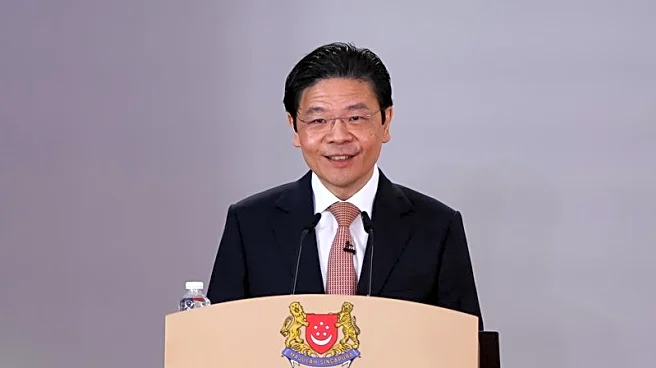What's Happening?
China has announced an extension of its visa-free entry policy for citizens from 45 countries, including Australia, New Zealand, and several European nations, until December 31, 2026. This policy aims to boost tourism and foreign engagement following
years of strict COVID-19 controls. Sweden will be added to the scheme effective November 10, 2025. The United States, Canada, and the United Kingdom are notably excluded from this scheme. The policy allows visitors from eligible countries to enter China for business, tourism, family visits, or transit for up to 30 days without a visa. This move is part of China's broader strategy to enhance its international relations and economic ties, particularly with the European Union.
Why It's Important?
The extension of China's visa-free policy is significant as it reflects China's efforts to revitalize its tourism sector and strengthen international relations. By excluding major Western countries like the U.S., Canada, and the U.K., China may be signaling geopolitical tensions or strategic economic priorities. The policy could lead to increased travel and economic activity between China and the included countries, potentially benefiting airlines, hospitality, and related industries. However, the exclusion of the U.S. and other Western nations might impact diplomatic relations and economic exchanges, highlighting ongoing geopolitical complexities.
What's Next?
China's decision to extend the visa-free policy may prompt reactions from excluded countries, potentially influencing diplomatic negotiations or trade discussions. The policy could lead to increased tourism and business exchanges with the included countries, fostering closer economic ties. Additionally, China's outreach to the European Union amid fraught trade relations suggests potential shifts in global economic alliances. Observers will be watching for any changes in China's foreign policy or further extensions of visa-free travel to other nations.
Beyond the Headlines
The visa-free policy extension may have deeper implications for global tourism and international diplomacy. It could influence travel patterns and economic interactions, particularly in the Asia-Pacific and European regions. The exclusion of major Western countries might reflect broader geopolitical strategies or economic priorities, potentially affecting global trade dynamics. The policy also highlights China's efforts to position itself as a key player in international tourism and economic engagement.


















